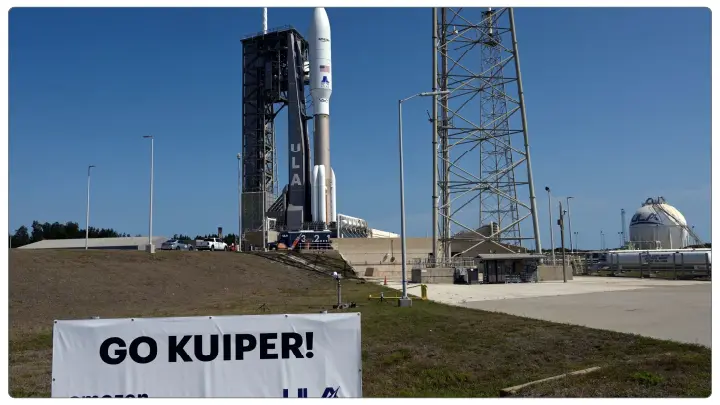Amazon Struggles with Launch Delays in Satellite Broadband Push
The United Launch Alliance was forced to postpone the second flight loaded with a batch of Amazon's project named the Kuiper internet satellite. 30 minutes before the launch, the company announced the postponement of the satellite due to a crucial problem with the rocket booster. ULA announced a halt to its launch as they confirmed issues with an elevated purge temperature found in its Atlas V rocket booster engine.

CEO of ULA, Tory Bruno, said in a post on BlueSky, “Possible issues with a GN2 purge line that cannot be resolved, we need to stand down for today. We will sort it back.”
The launch was previously scheduled for last Friday from Florida's space coast, though it was rescheduled for Monday at 1:25 PM ET because of weather changes. Kuiper is a new entrant in the sector of satellite internet and the launch has a target to offer high-speed satellite internet to the earth stations on the ground from low earth orbit where they have been located. In April 2025, Amazon successfully launched 27 Kuiper Internet satellites into LEO-low earth orbit. Low earth orbit is a space above the earth’s atmosphere within 1,200 miles of the surface of the earth from its ground.
Currently, this industry is ruled by SpaceX, which operates Starlink –a satellite constellation offering high-speed internet. Other companies include ViaSat and One Web, which a soft bank supports.
Amazon is planning to launch the next 27 satellites into LEO to complete their total satellite count to 54, as per data revealed by Amazon in a blog post. Amazon has set a target of 3000 satellites and possibly more than this count, making it the largest constellation for high-speed internet delivery. According to the law set out by a federal communications commission, Amazon has to meet a deadline to launch at least half of its decided satellite count. In brief, Amazon needs to launch 1,618 satellites by July 2026.